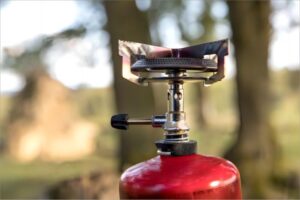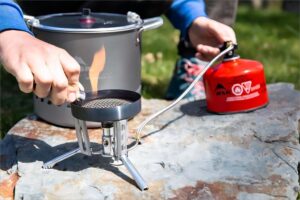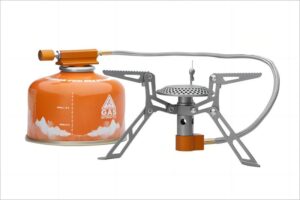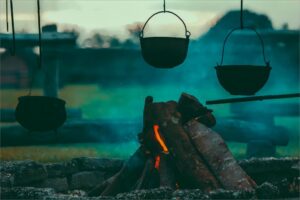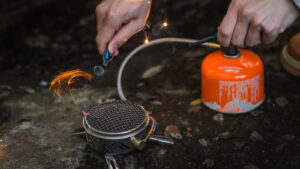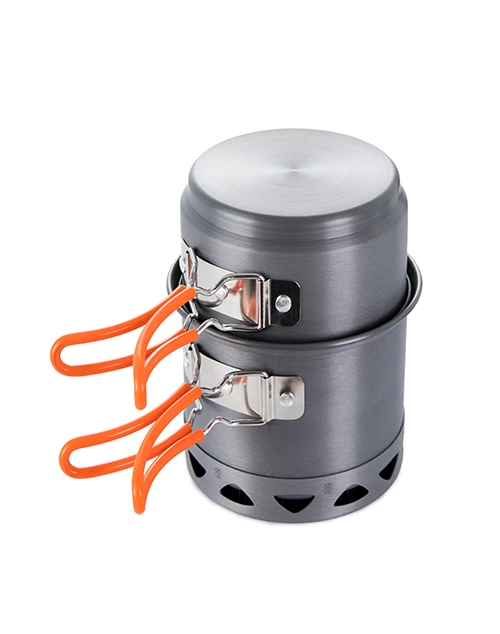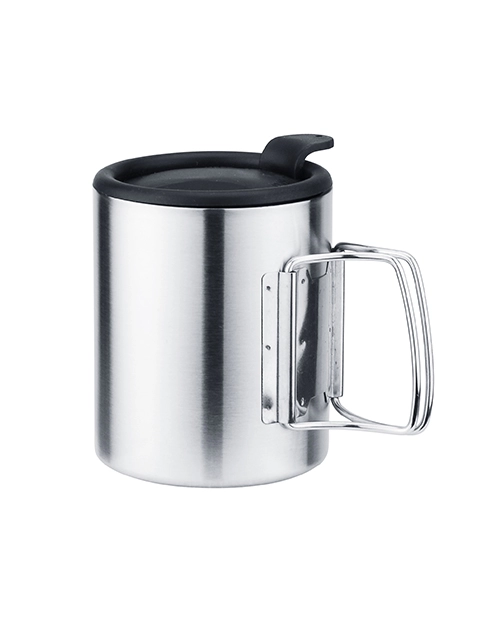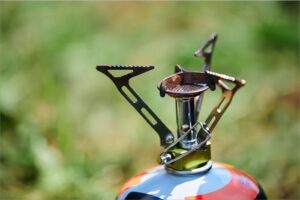
What are camping gas canisters?
Camping gas canisters, sometimes known as fuel canisters, are portable, small cylinders containing a gas mixture, often propane, butane, or isobutane. These canisters are particularly built for outdoor usage, usually with camping stoves or lights. The longevity of a camping gas canister is determined by several factors, including its size, the effectiveness of your camp stove, and the ambient circumstances.
A normal 220g canister can last between 2 and 4 hours of continuous cooking. However, cold temperatures can significantly reduce the canister’s life since the gasoline does not vaporize as efficiently. We recommend that you always bring additional canisters to guarantee that you don’t run out of gasoline on your camping trip.
The role of gas canisters in outdoor camping
Gas canisters are a vital component of outdoor camping, providing a dependable and handy source of energy. They are generally used to power camping stoves, which allow campers to cook meals, boil water, and offer warmth in inclement weather.
They also serve as fuel for camping lights, which provide required illumination at night or in low-light conditions. These canisters’ mobility and compactness make them ideal for outdoor adventures when carrying weight is critical.
How Long Does Camping Stove Gas Last?
A 220-gram gas canister will typically last around 2 hours under ideal conditions. Under these circumstances, a normal 450-gram cartridge will last around 3.5 hours.
So, how much gas are you going to need for your trip? Assuming you’ll be using gas to prepare hot beverages and meals, a two-week journey would require around 1680 grams of gas—or half that for seven days. Of course, it’s always a good idea to pack more gas than you need.
The figures provided above are preliminary estimates for an average trip, but certain important considerations can influence how long your gas lasts. They are:
- Higher altitudes lead to faster fuel depletion.
- Effective stove efficiency is a key consideration.
- Cooking technique refers to how well you use the burner and gas.
- Colder temperatures cause quicker gas depletion.
So, when deciding how much gas to carry, think about how you’ll cook, the efficiency of your stove, and the altitudes and ambient temps you’ll be cooking in. That way, you can calculate how much gas you’ll need—and make sure it lasts the entire journey!
Types of camping gas canisters and their durability
Many campers ask, “How long does a gas bottle last?”. While this is a crucial point to consider when planning your camping vacation, there are several different types of camping gas bottles available for your stove. Of course, the size of the canister determines how long it lasts, but the type of gas in the canister also influences its longevity and durability.
Butane Gas:
Butane is a common fuel in camping gas bottles. It is lighter than propane and easier to store since it has a lower pressure at room temperature. However, in lower temperatures (below 0°C), butane’s performance suffers substantially, leading it to vaporize slowly or not at all, resulting in wasteful fuel use and perhaps shortening the total lifespan.
Propane Gas:
Propane is another common fuel used in camping canisters. It operates wonderfully in cooler temperatures and retains pressure better than butane, allowing for constant fuel flow even in freezing conditions. However, propane’s higher vapour pressure necessitates stronger (and heavier) canisters. Propane burns hotter and quicker than butane, hence it often lasts less time.
Isobutane Gas:
Isobutane gas is generally seen as the finest of the two worlds. It is lighter than propane, operates better in cold weather than butane, and keeps a constant pressure, resulting in a continuous fuel flow. This combination of qualities frequently results in isobutane lasting longer than the other two gases, making it a popular choice for campers.
Maximising the efficiency of your camping gas canister
You can try a variety of strategies to make the best use of your camping gas cylinder.
- When cooking, always use a windshield or choose a protected area. This approach reduces the impact of wind, which may blow away the heat created by your stove, needing less gas to cook your meal or boil water.
- Use a heat reflector under your stove to redirect wasted heat back to your pot, improving heat efficiency.
- Regularly maintain your camping stove by cleaning it after use to prevent clogged burners and reduced performance.
- Always make sure the pot is the right size and put in the center of the stove. A pot that is too tiny will inefficiently catch heat, but a pot that is too large may send heat onto your burner, wasting fuel.
- Use the lowest flame setting to provide adequate heat. A smaller flame requires less fuel, which extends the life of your canister.
- Adopt these practices for your future camping trips, and you’ll see a noticeable extension in the life of your camping gas canisters.
Gas bottles are a very important item to have on any camping trip. They have several useful applications beyond cooking and boiling water that may make your vacation more fun and safer. The lifespan of camping gas is determined by several parameters, including altitude, temperature, stove performance, and cooking techniques. Before you begin cooking with camping gas, you need choose which sort of gas and burner will best suit your needs.
ODM service
Looking for reliable camping stove supplier? At Deermaple, we specialize in ODM service, offering high-quality and innovative stoves tailored to your needs.
If you are interested in camping stove wholesale , please contact us.

